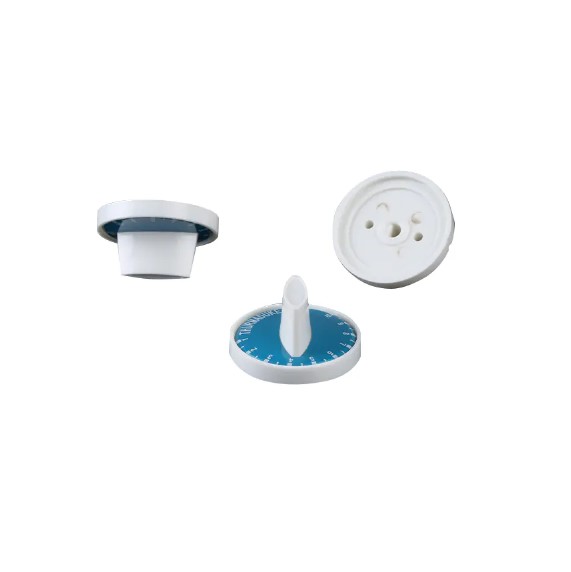Heat-resistant materials in oven knobs are essential for ensuring durability and long-term performance by withstanding the high temperatures generated during cooking and baking processes. These materials play a critical role in maintaining the functionality and safety of oven knobs, offering several key benefits:
-
Resistance to High Temperatures: Heat-resistant materials, such as heat-resistant plastics or thermoset resins, are specifically engineered to withstand the extreme temperatures encountered in ovens. These materials have high melting points and are designed to resist deformation, warping, or discoloration when exposed to heat. By withstanding temperatures typically ranging from 250°F to 500°F (121°C to 260°C) or higher, heat-resistant oven knobs maintain their structural integrity and functionality even under prolonged exposure to heat.

-
Prevention of Melting or Deformation: Ordinary plastics or materials not designed for high-temperature applications can melt, deform, or become brittle when exposed to oven temperatures. This can compromise the functionality and safety of oven knobs, leading to malfunction or breakage. Heat-resistant materials are formulated to withstand the thermal stress and expansion that occur when exposed to high temperatures, preventing melting, deformation, or deterioration over time.
-
Longevity and Durability: Oven knobs made from heat-resistant materials offer enhanced longevity and durability compared to standard knobs. Their ability to withstand repeated exposure to heat ensures that they maintain their shape, functionality, and appearance over the long term. This reduces the need for frequent replacement and ensures consistent performance, contributing to cost savings and user satisfaction.
-
Safety and Reliability: Heat-resistant oven knobs contribute to the safety and reliability of the appliance by ensuring that the controls remain intact and functional even in high-temperature environments. Malfunctioning or damaged knobs can pose safety hazards, such as difficulty in adjusting temperature settings or the risk of burns from hot surfaces. Heat-resistant materials provide a reliable barrier against heat-related damage, enhancing the safety and usability of the oven.
-
Protection of Internal Components: In addition to protecting the knobs themselves, heat-resistant materials help safeguard the internal components of the oven from heat-related damage. By maintaining the integrity of the controls and preventing overheating, these materials ensure that critical components, such as electronic circuits or mechanical mechanisms, remain protected and operational. This extends the overall lifespan of the oven and reduces the likelihood of costly repairs or replacements.
-
Aesthetic Appeal: Heat-resistant materials can also contribute to the aesthetic appeal of oven knobs by maintaining their appearance and finish even after prolonged use. These materials are often formulated to resist discoloration, fading, or surface damage caused by heat exposure, ensuring that the knobs retain their original appearance over time. This enhances the overall look and feel of the oven, contributing to a more attractive and well-maintained kitchen environment.
In summary, heat-resistant materials in oven knobs ensure durability and long-term performance by withstanding high temperatures, preventing melting or deformation, enhancing longevity and reliability, promoting safety, protecting internal components, and maintaining aesthetic appeal. By selecting materials specifically designed for high-temperature applications, manufacturers can ensure that oven knobs deliver consistent functionality and user satisfaction throughout the lifespan of the appliance.


 English
English  中文简体
中文简体











